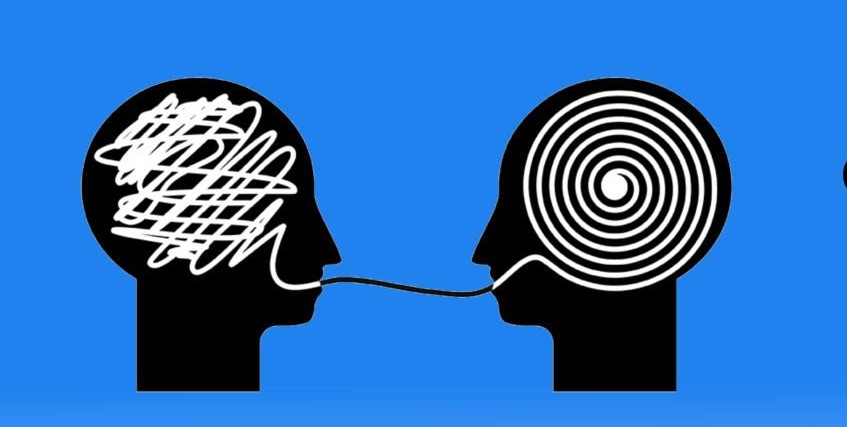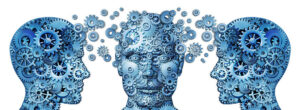Theme
Twisting Truth for Hidden Agendas, although the transfer of an idea from one mind to another is often imagined as a simple, linear process. In reality, it is anything but. Every idea, before reaching its destination, passes through a network of filters—linguistic choices, emotional states, cultural contexts, and individual experiences. These filters can subtly reshape or distort the original meaning, leading the receiver to understand something quite different from what the sender intended. https://mrpo.pk/restoring-the-divine-connection/
This complexity becomes especially significant when the ideas being communicated challenge deeply held beliefs, particularly religious ones. History has shown that ideologies, when weaponised, can reshape entire civilisations by altering the way people think, feel, and perceive reality. In this contest for influence, religions have often been targeted not with confrontation, but with indirect manipulation. Among all religions, Islam, with its bold claim to being the final and complete guidance for humanity, has been a particularly prominent target.
This study is an attempt to uncover the mechanisms through which ideas contrary to Islamic teachings are introduced, refined, and embedded within Muslim societies. It seeks to analyse the process from beginning to end—how the ideas are created, how they are transmitted, how they bypass resistance, and how they ultimately shape belief and behaviour. More importantly, it explores how Muslims can develop the intellectual and spiritual tools necessary to recognise and resist such influences.
Aim
To critically examine how ideas that contradict Islamic teachings are conceived, communicated, and ultimately internalised within Muslim societies, while offering practical strategies for identifying and resisting such ideological intrusions.
Scope
- The Nature of Communication and Ideological Filters: A detailed exploration of how human communication is inherently filtered and how these filters can be manipulated to reshape meaning and distort truth.
- The Creation and Spread of False Concepts: An investigation into how ideological agents use psychological, educational, and media strategies to embed alien ideas in Muslim minds.
- Case Studies of Ideological Subversion: Real-world examples, both historical and contemporary, including secularism, materialism, and the redefinition of Islamic terms and figures.
- Psychological and Sociological Mechanisms: An analysis of how emotions, biases, and group dynamics are exploited to bypass rational defences.
- Islamic Guidance on Recognising Falsehood: An exploration of Quranic principles and Prophetic teachings that provide criteria for identifying misleading ideas.
- Recommendations for Individual and Collective Resistance: Practical guidance for Muslims to safeguard their intellectual and spiritual identity.
- Comparative Insights from Other Religions: A brief look at how similar ideological tactics have been used against Judaism and Christianity to broaden contextual understanding.
The indoctrination:
Introduction:
Religion has always played a vital role in shaping civilizations, guiding moral conduct, and anchoring community identity. Yet it has also been a prime target for manipulation by forces seeking to redefine power structures, control societies, or dilute resistance to ideological domination.
Christianity and Judaism, for instance, have experienced extensive internal transformations over centuries—often as a result of external pressures or political compromises. Islam, by contrast, has preserved its core message through the Quran and Sunnah, unchanged and uncorrupted. This durability, however, has made Islam a particular focus of those who aim to neutralize religion’s societal influence.
Rather than attempting to confront Islam head-on, modern ideological campaigns have taken a more nuanced approach: subtly distorting Islamic teachings, recasting Islamic symbols, and promoting alternative worldviews under the guise of enlightenment and progress. These campaigns are not merely political or cultural—they are psychological, intellectual, and spiritual in nature.
This study seeks to illuminate these mechanisms and offer Muslims a roadmap to preserve the authenticity of their faith in the face of increasingly sophisticated ideological manipulation.
Theoretical Framework: Filters in Human Communication
The process of communication—far from being a mere transfer of data—is deeply influenced by context and cognition. Every message we receive is interpreted through a set of filters: the words chosen by the speaker, the assumptions held by the listener, the cultural references embedded in the exchange, and the emotional state in which the message is processed.

Consider the word “freedom.” To a Western audience, it may evoke images of individual rights and democracy. To a traditional Muslim society, it might conjure concern about moral relativism or the erosion of communal ethics. The same word, yet vastly different meanings.
Such variances create opportunities for manipulation. When ideological agents exploit these filters—intentionally choosing words or images that resonate emotionally or culturally—they can smuggle in distorted concepts that appear familiar but are fundamentally alien to Islamic thought.
Understanding these filters is crucial because they are the very mechanisms used by deceptive ideas to penetrate and influence minds.
Pathway of Idea Transmission and Distortion
Ideological Engineering: How Falsehood is Manufactured
False ideas are not mere misunderstandings or accidents of thought. They are often the product of deliberate design, created and promoted by individuals or institutions with a vested interest in reshaping society.
One powerful method involves the manipulation of cognitive biases. For example, the illusion of truth effect1—the tendency to believe something is true simply because it is repeated—makes populations vulnerable to persistent media messages, even when those messages are false. Likewise, emotional bypassing2 uses strong feelings like fear, anger, or guilt to override critical thinking and embed messages at a subconscious level.

In education, historical figures and concepts are reinterpreted to align with secular worldviews. Textbooks may subtly shift timelines, omit religious motivations, or present colonial ideas as beneficial. In media, Islamic terminology is often redefined—“Jihad” becomes synonymous with terrorism, “Shariah” with oppression, and “Khilafah” with extremism.
These strategies are designed to alienate Muslims from their own tradition, leaving them ideologically disoriented and susceptible to replacement beliefs.
📚 See also: Edward Bernays’ Propaganda
Case Studies: Historical and Contemporary Misrepresentations
Several prominent examples demonstrate how these ideological tactics have been applied in the real world:
- Secularism as Modernity: Promoted as a necessary step toward progress, secularism was embedded in Muslim societies during the colonial and post-colonial eras. It redefined governance, law, and education, disconnecting them from Islamic roots.
- Materialism and Consumerism: Through media and economic policy, the pursuit of wealth and personal pleasure replaced spiritual and communal values, shifting identity from Ummah-centric to self-centric.
- Distortion of Jihad: Once a noble concept involving the struggle for truth and justice, Jihad has been weaponised in media narratives to stigmatise Muslim activism and justify foreign interventions.
- Historical Revisionism: Figures such as Salahuddin Ayyubi or Imam Abu Hanifa are often presented in secular terms, stripped of their religious motivations, making them appear as mere political or legal reformers rather than deeply spiritual leaders.
Psychological and Sociological Mechanisms of Acceptance:
Humans are not purely rational creatures. Our minds are shaped by the opinions of those around us, by emotional resonance, and by unconscious needs for belonging.
Ideological manipulators exploit this:
- Groupthink makes dissent costly and conformity rewarding.3
- Social proof (the idea that if many believe something, it must be true) discourages independent thought.4
- Cognitive dissonance pushes individuals to modify their beliefs when faced with discomforting truths.5
By gradually surrounding a false idea with emotional appeal and social validation, manipulators make resistance seem unreasonable, outdated, or even dangerous.
Recognising False Ideas: The Islamic Lens
Islam does not leave believers defenceless in the face of ideological deception. The Quran and Sunnah provide clear warnings and practical guidance:
- Surah Al-Hujurat (49:6): “O you who believe! If a wicked person comes to you with news, verify it…”6
- Surah Al-Baqarah (2:170): “When it is said to them, ‘Follow what Allah has revealed,’ they say, ‘We follow what we found our forefathers upon,’ even though their forefathers understood nothing…”7
The Prophet Muhammad ﷺ taught his companions to question, reflect, and seek truth even when it was unpopular. Verification, intellectual humility, and unity are all core values emphasised by Islamic tradition.
🕋 Related Reading: Tafsir Ibn Kathir – Surah Al-Hujurat 49:6
Recommendations: Rebuilding Resistance

At the Individual Level:
- Pursue a deep understanding of Islamic principles through reliable sources.
- Cultivate critical thinking and avoid blind emotional reactions.
- Practice media literacy to identify bias and misinformation.
At the Community Level:
- Build local institutions for authentic Islamic education.
- Encourage intergenerational dialogue to bridge ideological gaps.
- Create platforms for thoughtful discussion, free from cancel culture.
At the Institutional Level:
- Reform educational curricula to reflect Islamic epistemology.
- Support media projects that represent Islam fairly and intelligently.
- Engage in academic and public discourse from a position of confidence, not defensiveness.
Comparative Note: Lessons from Other Faiths
Judaism and Christianity have experienced similar ideological transformations:
- Judaism faced secular Zionism and assimilationist pressures.
- Christianity underwent theological dilution during the Enlightenment and Reformation.
By examining these cases, Muslims can learn how ideological manipulation operates universally—and how a faith community can either succumb to or resist it.
These recommendations are intended as a foundational outline; their effective implementation demands serious deliberation, contextual analysis, and a dedicated, separate study to address the complex realities of contemporary Muslim societies.
Conclusion:
The ideological assault on Islam is not a chaotic phenomenon—it is a deliberate, structured, and persistent effort. It operates through sophisticated psychological and cultural mechanisms that manipulate communication, reshape perception, and normalise deviation.
By developing a clear understanding of these mechanisms and grounding ourselves in the Quran, Sunnah, and critical inquiry, Muslims can stand firm against falsehood. The path forward requires a revival of both intellect and faith, a union of tradition and strategy. Only then can the Ummah reclaim its intellectual sovereignty.
Final Word:
In an age where ideas travel faster than truth, the challenge for Muslims is not only to guard their faith but to understand the battlefield upon which that faith is contested. The erosion of Islamic thought does not happen through swords or armies, but through ideologies clothed in the language of progress, tolerance, and modernity. This study has uncovered how these ideas are crafted and how they infiltrate, but the real victory lies in awakening the Muslim mind to its own strength. Intellectual vigilance, spiritual depth, and communal unity are no longer luxuries—they are necessities. If Muslims reclaim the tools of critical thought grounded in divine guidance, they will not only resist distortion but will also offer the world a model of clarity, balance, and truth in a time of global confusion. The revival begins with awareness, and the responsibility rests with us all.


